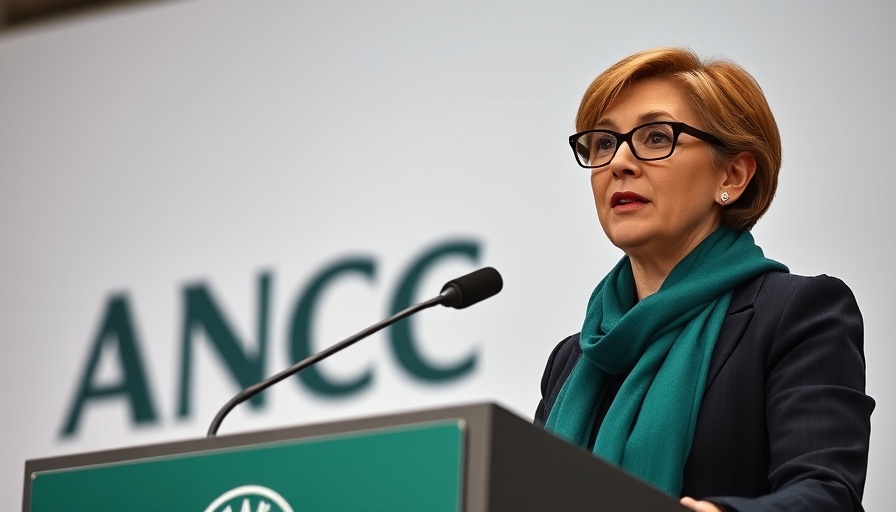
A Pivotal Moment for the ANC: Understanding the Lekgotla's Significance
This past weekend, the African National Congress (ANC) in Gauteng convened a critical provincial Lekgotla, which could herald a significant shift not only for the party but also for the constituents it serves. Held in Fourways, Johannesburg, the gathering aimed to chart a path forward following the disbandment of the Provincial Executive Committee. ANC spokesperson Mahlengi Bhengu-Motsiri heralded the meeting as a 'watershed moment.' The challenge is substantial, as the party grapples with its worst electoral performance yet and increasing public dissatisfaction.
Historical Context: From Glory to Decline
Once the stalwart of South African democracy with an unassailable electoral base, the ANC has faced multiple crises in recent years. The disservice to constituents, seen through a lens of declining service delivery, corruption, and internal strife has systematically chipped away at its credibility. Understanding this historical backdrop emphasizes the importance of the Lekgotla as an opportunity for revitalization.
Rebuilding Confidence: Economic Recovery at the Forefront
Gauteng Premier Panyaza Lesufi articulated the urgency of addressing Gauteng's deteriorating infrastructure, especially with the G20 Summit on the horizon. This isn’t just about optics for a summit; it’s about rectifying years of neglect. "We must resolve the issues of decay not just for the G20, but for our province’s economic turnaround," stated Lesufi. The necessity of urban maintenance intersects with a broader agenda of economic policy reform, linking infrastructure with voter sentiment in upcoming electoral cycles.
Political Realignment and Voter Sentiments Ahead of 2024 Elections
As South Africa braces for the 2024 general elections, the ANC must contend with not only its internal shortcomings but also the rise of formidable opposition parties like the Democratic Alliance (DA) and the Economic Freedom Fighters (EFF). There’s an increasing demand for voter engagement, electoral reforms, and public accountability. The party's rehabilitation will depend on its ability to effectively address these challenges while fostering a sense of belonging within its voter base.
Concrete Steps Toward a Stronger Future
To rebuild trust, the ANC must undertake significant public sector reforms, explicitly targeting service delivery and combating state capture. The Lekgotla concluded with commitments to implement anti-corruption measures and improve municipal relationships but will these adjustments materialize into meaningful actions? The clearest path forward will rely on transparent decision-making processes and the active participation of the civil society.
The Importance of Coalition Building
Amidst these refinements, forming a Government of National Unity (GNU) to ensure broader representation might be the key to reviving public trust. The ANC's ability to cooperate with other political factions could drive significant progress in crucial issues—from youth unemployment and land reforms to climate change policies. Creating alliances with former foes such as the DA or even EFF could create unexpected synergies that may drive forward national interests over party politics.
Public Expectations and Future Outlook
The discontent among voters signals a transformational period in South African politics. There is an escalating demand for accountability, leading to the potential reshaping of former loyalties. Politicians must adopt a new paradigm of governance that resonates with evolving public expectations. Addressing issues such as rising crime rates, gender-based violence, and economic disparities will be imperative in regaining the public’s trust.
As these engaging questions linger, the ANC stands at a crossroads. Can the party effectively navigate through this pivotal moment? With strategic planning and public involvement, perhaps the Lekgotla could serve as the launching pad for a new ANC, one that doesn't just reclaim power but reinvigorates hope among its constituents.
Call to Action
The challenge lies ahead not only for the ANC but also for the electorate. As South Africans, it's time to demand substantive change and hold elected officials accountable. Engage in the political discourse, attend public meetings, and cast your vote—only then can we forge a path toward a more just society. Remain vigilant, informed, and involved!
 Add Row
Add Row  Add
Add 




Write A Comment